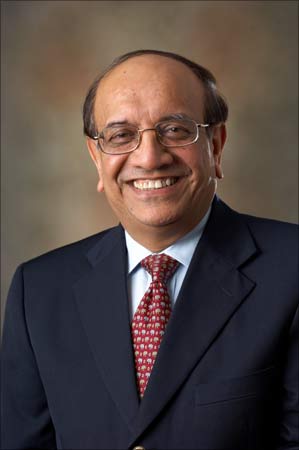 | « Back to article | Print this article |
US company moves back call centre from India
Carbonite, a Boston-based company providing online data backup services, is in the process of replacing its call centre in India with one in the United States.
Despite higher costs in the US, Carbonite says it has taken the step due to high turnover among its Indian staff, and complaints about the quality of service provided.
The company is hiring staff for its new call centre in the north-eastern state of Maine. The centre was set up in June and expects to have 150 employees by the end of the year, going up to 250 by the end of 2012.
This operation will replace Carbonite's call centre in India, which will be closed by the year-end, according to statements of company officials, sending home around 150 workers.
Click NEXT to read further. . .
US company moves back call centre from India
Carbonite was set up in 2005, and opened its Indian call centre a year later.
The company also has 150 employees at a customer support centre in Boston. It reported revenues of over $38 million last year and a net loss of $26 million for 2010.
Announcing the setting up of the new call centre in Lewiston, Maine, co-founder and chief executive officer David Friend said, "We have tried to match the level of customer satisfaction that we get from our support centre in India versus our customer support centre in Boston, and the latter continuously, and across the board, beats our Indian operation in terms of customer satisfaction."
Friend said the move made better business sense for the company even though it would pay 'three times more' to its employees than it does to the staff in India.
Salaries for full-time staff at the Maine call centre are expected to average $35,000 a year, including benefits, and up to $50,000 for managers.
Click NEXT to read further. . .
US company moves back call centre from India
Carbonite filed for an IPO in May 2011, and its executives declined to answer questions from Business Standard, citing the 'quiet period' following the S-1 filing with the US Securities and Exchange Commission.
But speaking to the US media earlier in Maine, senior executives mentioned employee turnover rates of '100 per cent' at Carbonite's Indian call centre, and complaints from customers about the quality of service.
Recently, the British bank Santander UK had announced it would close its call centres in India and move these back to the UK.
Outsourcing is facing a political backlash in the US as it's blamed for the loss of jobs during a recession, and companies often face complaints from customers about having to deal with foreign support staff.
Click NEXT to read further. . .
US company moves back call centre from India
However, this is not the beginning of a damaging trend to India's IT-BPO sector, says Ben Trowbridge, chief executive officer of the Dallas, Texas-based Alsbridge, a consulting firm that advises clients on outsourcing and benchmarking.
"We've seen a similar report every two-three years," he says, adding that "they play well to populist sentiment"
Work moving to and from India is part of the normal business cycle, Trowbridge explains, emphasising that 'it's about 60 per cent cheaper to get similar work done in India and that has not changed' over the past few years.
Click NEXT to read further. . .
US company moves back call centre from India
Referring to Carbonite's claim of 100 per cent turnover among call centre staff, Trowbridge acknowledges that turnover is a part of the economic growth pattern in a dynamic economy like India's and says Indian employers need to be careful in ensuring they maintain their value of service by delivering better quality at a competitive cost.
But he also points to his own company's experience: "We've had zero turnover," he says, at their office in India.
Over the past eight years, Alsbridge has advised over a 1,000 clients, and about 70 per cent of them have outsourced some services to India.
Click NEXT to read further. . .
US company moves back call centre from India
Indian industry also remains confident that the recent setbacks do not point to the country losing its competitive advantage in this sector.
"A few announcements, made recently by companies about relocation of work are not indicative of any trends," says Rajiv Kumar, secretary general of Federation of Indian Chambers of Commerce and Industry.
"These are business decisions, which are taken at the individual firm level. The Indian outsourcing sector would continue with its high growth phase given the many advantages that are on offer."
Click NEXT to read further. . .
US company moves back call centre from India
According to the Indian software industry group National Association of Software and Service Companies, India increased its share to 55 per cent of the global IT-BPO market last year in the face of competition from other emerging offshoring destinations.
India's largest software exporter TCS confirms that demand continues to be strong for its services.
Surya Kant, president, North America, UK & Europe at TCS, told Business Standard:
Click NEXT to read further. . .
US company moves back call centre from India
"The significant emphasis we place on customer service has resulted in 99.8 per cent of our revenue coming from existing clients.
"Continued strong demand is resulting in robust global hiring with projections for the current financial year of a global addition of 60,000 employees."
"Meanwhile, Carbonite, which had set up its call centre in India in 2006 following "the fashion at the time", according to CEO David Friend, declined to say if it would consider returning to India as part of any future expansion.








